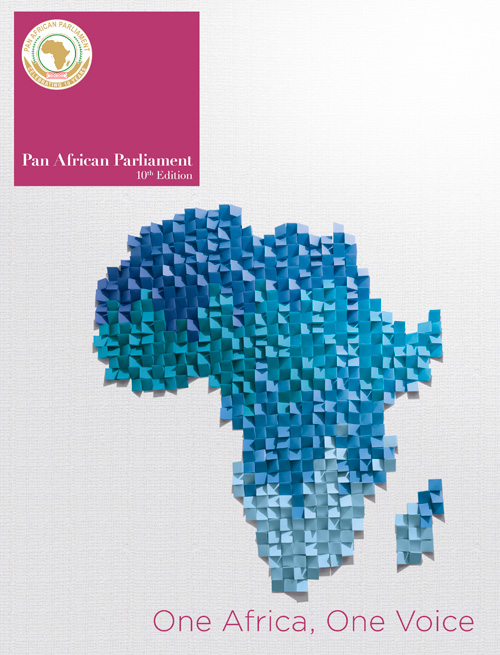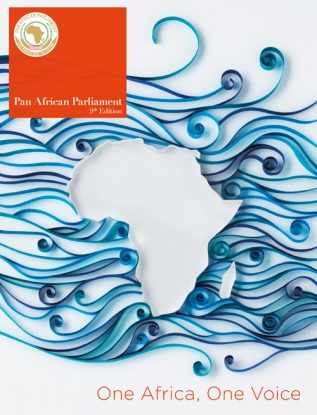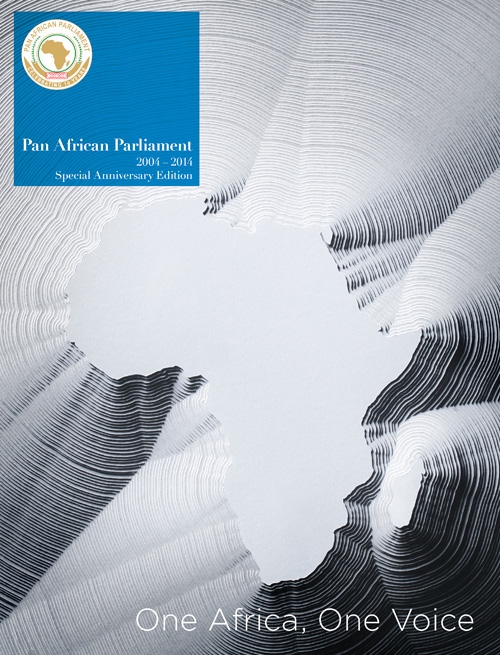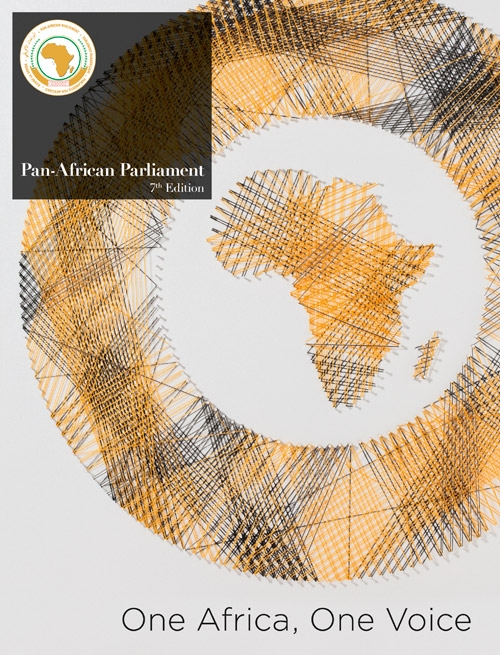
‘While we celebrate great progress in this regard we need at least 27% ratification at the upcoming Speakers’ Conference. But I am optimistic. All the obstacles we have overcome in getting this far means that we are on the right path to ensuring that the Pan African Parliament is now fit to contribute in a much more meaningful way towards the integration of the continent,’ says Adv Zwelethu Madasa, Clerk of the PAP.
‘Further, with a full-time Parliament, we will have the capacity to contribute effective change so that we can help to address levels of poverty and underdevelopment. This is a critical mandate because we will be able to provide legislative frameworks to ensure National Parliaments can commit to various programmes that will ensure the health of Africa.’
This latest development builds on the momentum of the cycle of change that the PAP has embarked upon over the past year. For one, its membership increased up from 205 with the admission of Coté d’Ivoire, the DRC and the Seychelles which, says Adv Madasa, is significant because it proves that political instability experienced by some of these countries is being resolved. This is something that the PAP can attest to, given its Election Observation Missions that it has been under-taking for eight years.
‘Over the past year, the PAP has sent missions to Cameroon and Swaziland. Although we don’t have the freedom we’re used to, given that the PAP’s electoral observations now fall under the AU’s missions, we contribute to the overall reporting,’ he says.
‘We have also debated for the PAP to return to its independent election observation status but accept for now that the PAP is but an organ of the AU, and is bound by its decisions.’ What Adv Madasa is keen to highlight are the fact-finding missions that the PAP have undertaken. These are tasked with establishing what is happening at grass-roots level, especially in areas where conflict is experienced. Mali, for example, is a case of interest because the PAP investigated at a time when northern rebels threatened the establishment of the government. ‘It put the PAP in the unique position of being able to understand how residents are affected, and we were able to compile a detailed report, with recommendations, to the Peace and Security Council, that in turn saw enough value to implement them.’
Sudan and South Sudan also presented an interesting case study because, as the PAP found, ordinary citizens do not really understand the cause of the conflict between the two states. ‘These are people who integrate by marriage, religion and economics. All they want is to get on with their activities and, in fact, we concluded that the division and strife is artificial and created by politics.’
The Central African Republic also came under the spotlight of a PAP fact-finding mission. The resulting report insists that dialogue for reconciliation among the people is needed prior to elections and that sanc-tions be lifted to facilitate the way for international assistance, humanitarian and otherwise.
‘The obstacles we have overcome in getting this far means that we are on the right path’
What the PAP does well is host conferences, and last year was no different. At its Annual Conference of Speakers, information sharing was critical on the agenda. ‘It is here we update our members on PAP activities, present our challenges and encourage support both for the PAP and among its National Parliament represen-tatives,’ confirms Adv Madasa.
‘Yet another highlight is our annual Women’s Conference. Last year we focused on politics and how to ensure women are better represented in Parliaments. In Africa we are still seeing that unless you have a big purse, women are less likely to be elected into constituencies and even when the opposite is true, traditional values and religious preferences are then a stumbling block.
‘This also speaks to why, in our revised Protocol for the PAP’s legislative powers, we motivated for the improve-ment of gender representation so that at least two women are required in the delegation from National Parliaments. We obviously advocate for more than two, but we are open-minded that as quotas grow, mindsets will change and we will no longer have to deal with the narrow arguments of the past.’
The Protocol also provided for – and initiated – a formal platform for the PAP to facilitate interaction between itself, National and Regional Parliaments to promote the principles of the AU, most importantly those of govern-ance, human rights and democracy. In its first meeting, attended by Regional Parliaments such as SADC, the East African Legislative Assembly and the Economic Community of West African States, it was agreed that this consultation should occur annually and be institutionalised as part of the annual Speakers’ Conference.
‘On the agenda was a PAP proposal to assist with weaker Parliaments, to empower and capacitate them, to strengthen them institutionally,’ says Adv Madasa. ‘This was a very powerful and rewarding consult, and it spoke directly to the PAP’s strengths.’
AU Vision 2063, like the African Charter on Public Service and the Anti-Corruption Charter, remains on the PAP’s agenda. For AU Vision 2063, the assembly of Heads of States and Governments decided to adopt a draft agenda that had been prepared by the AU Secretariat, that all organs of the AU must motivate how they will contribute to the vision. ‘The PAP put forward that it will be the main facilitator to ensure that all endeavours, programmes and plans related to AU Vision 2063 are expedited, and I am pleased to report that the PAP’s recommendation was adopted,’ says Adv Madasa.
Future plans include the continued building of the PAP, which Adv Madasa says means drawing from the pool of institutional transformatory leadership and agents of change, who embrace African values. ‘I believe that the human element of the PAP is the greatest achievement on this continent. That we annually bring together Africans from diverse backgrounds, countries, religions, communities and geographic regions, without scandal or infighting, shows that the remaining divisions on the continent are more artificial than real.’







